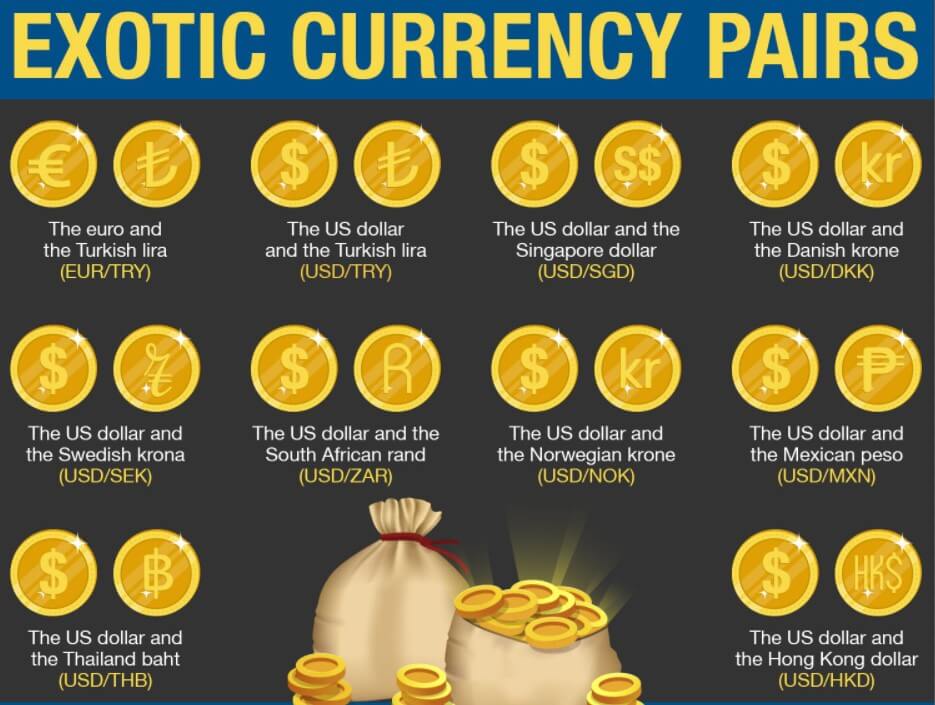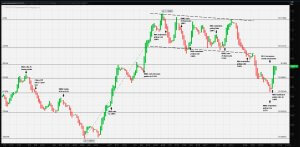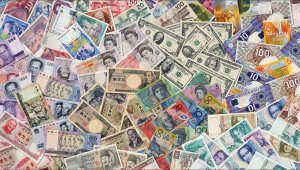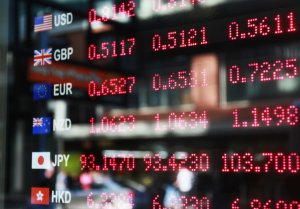Currency pairs fall into one of three categories: major, minor, or exotic. Major pairs include the most traded currency pairs and always feature the US dollar. Some examples would include the EUR/USD, USD/JPY, GBP/USD, and USD/CHF. Minor pairs, otherwise known as cross-currency pairs, don’t include the US dollar. For example, GBP/JPY or EUR/AUD are both minor currency pairs. Exotic pairs typically consist of a major currency that is traded alongside a less traded currency, or a currency that comes from an emerging market. Here are some examples of exotic currencies:
- TRY – Turkish Lira
- HKD – Hong Kong Dollar
- JPY – Japanese Yen
- NZD – New Zealand Dollar
- AUD – Australian Dollar
- MXN – Mexican Peso
- NOK – Norwegian Krone
- SGD – Singapore Dollar
- ZAR – South African Rand
- THB – Thailand Baht
- DKK – Danish Krone
- SEK – Swedish Krona
You will see exotics traded against currencies like EUR/TRY, USD/HKD, JPY/NOK, NZD/SGD, and so on. These pairs can be more volatile and are not offered for trading by every broker. Some brokers pick and choose certain exotic pairs, while others might offer every exotic, or none at all. You can check your broker’s product list to see what is available.
You might wonder whether it is a good idea to trade this type of currency. These pairs are undoubtedly more volatile than majors and minors, and we wouldn’t suggest trading exotics if you’re a beginner. Major and minor currencies are less risky because they are attached to stable economies, which are usually moved by interest rates and economic data. Political and economic instability have more of a driving force with exotics. The fact that less traders are trading exotics can also cause more drastic price movements and spreads tend to be wider with these instruments. After all, there’s a reason why many brokers limit their dealings with this type of instrument.
While trading exotic pairs is risky, these types of instruments might suit one’s trading style in way that other instruments don’t. If you have a lot of experience and understand the market, then it might be worth investing in exotics with a long-term trading plan. On the other hand, traders should remember that you do not have to trade with these just because they exist. Sticking with majors and minors is a much safer option and there is nothing wrong with sticking to basics, especially where money is involved. If you’re determined to trade exotics, we would suggest practicing with a demo account first, so that you’ll be more prepared.






